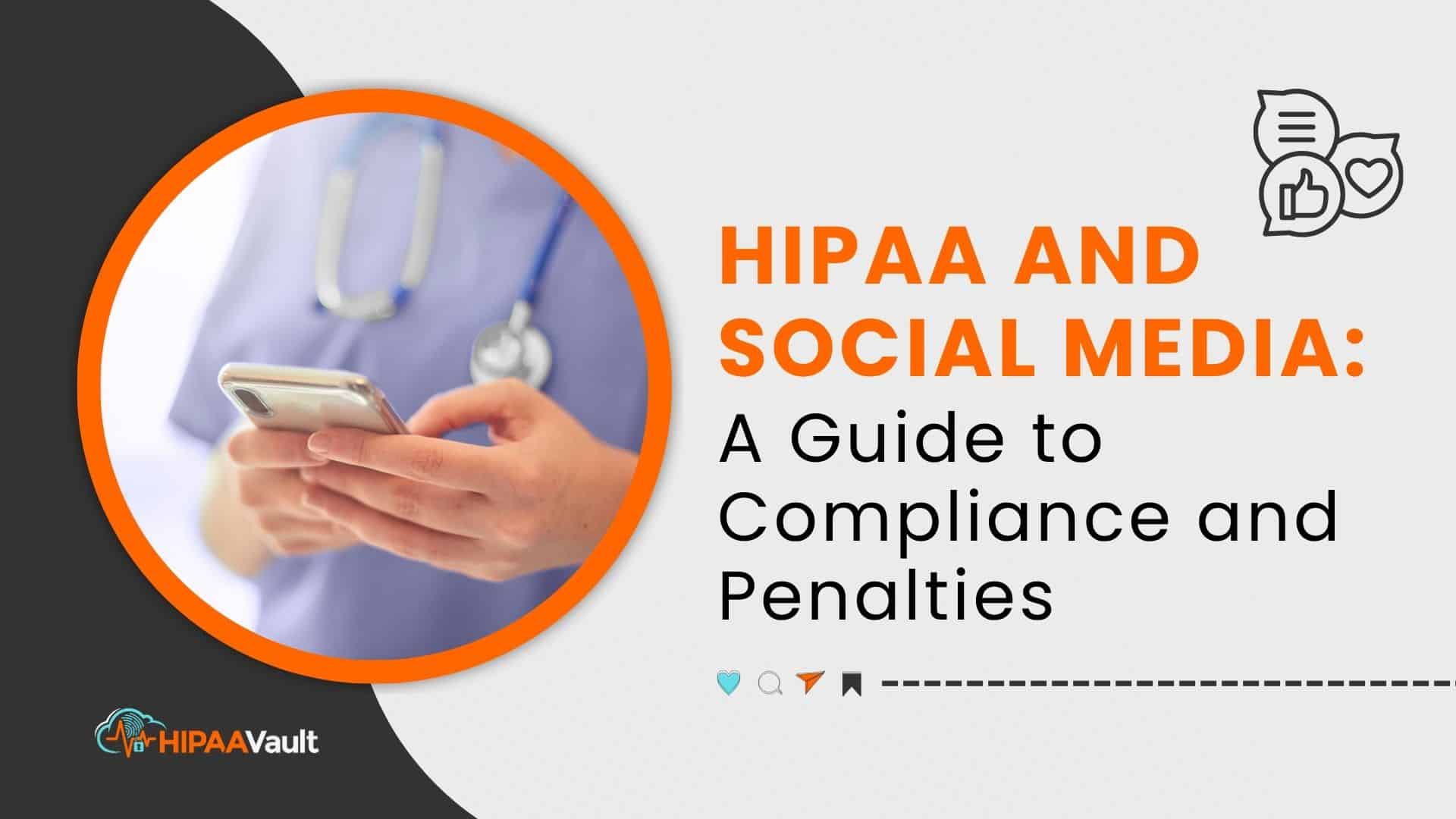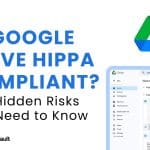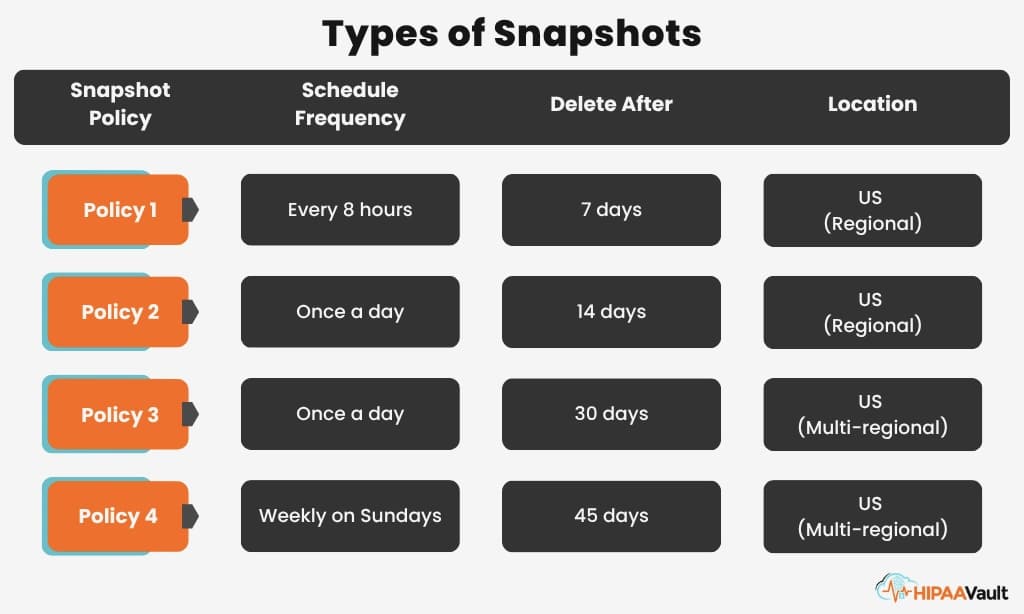With over 5 billion global users across platforms like Facebook, Instagram, LinkedIn, and TikTok, social media continues to redefine communication — and healthcare is no exception. Hospitals, clinics, and private practices now rely on social channels for community engagement, patient education, and brand visibility.
But this rise in connectivity brings an equally sharp rise in risk. When social media and protected health information (PHI) collide, even a well-intentioned post can result in a costly HIPAA violation.
🔒 Worried about HIPAA compliance on social media?
Download HIPAA Vault’s Free HIPAA Compliance Checklist →
Why HIPAA and Social Media Can Be a Risky Mix
The Health Insurance Portability and Accountability Act (HIPAA) governs how covered entities and business associates handle PHI — from storage and transmission to public disclosure. Unfortunately, social media makes unintentional disclosure dangerously easy.
For example:
- A nurse shares a “success story” about a recent patient without removing identifying details.
- A clinic’s marketing post includes a photo of staff — with a patient chart visible in the background.
- A staff member vents about a difficult patient encounter on Facebook, forgetting that privacy settings can change or screenshots can circulate.
These small oversights have led to significant fines from the HHS Office for Civil Rights (OCR). In one case, a dental practice was fined $10,000 for responding to a Yelp review with patient-specific information — proving that even a single comment can constitute a breach.
Potential Penalties for a HIPAA Breach on Social Media
HIPAA violations carry heavy consequences under OCR’s enforcement structure.
Depending on the severity and intent, penalties can include:
| Tier | Description | Fine Range (per violation) |
| Tier 1 | Lack of knowledge | $137 – $68,928 |
| Tier 2 | Reasonable cause | $1,379 – $68,928 |
| Tier 3 | Willful neglect (corrected) | $13,785 – $68,928 |
| Tier 4 | Willful neglect (not corrected) | Up to $2,067,813 annually |
Beyond financial loss, breaches can result in:
- Termination of staff or loss of professional license
- Mandatory compliance audits
- Irreversible damage to patient trust and reputation
📞 Protect your organization before a post goes viral for the wrong reasons.
Request a HIPAA Vault Strategy Call →
(Source: HHS OCR, 2025 Penalty Adjustments)
Why Reporting Social Media Violations Matters
When a possible HIPAA violation occurs, reporting quickly is the best defense.
Healthcare organizations are required to investigate and, if confirmed, report certain breaches to OCR and affected individuals.
Timely internal reporting helps:
- Minimize exposure by removing offending content
- Demonstrate due diligence during audits
- Prevent repeat violations through education
Encourage a non-punitive reporting culture, where staff feel safe disclosing mistakes. This reduces risk and supports continuous compliance improvement.
How to Ensure HIPAA-Compliant Social Media Practices
1. Update Policies and Training
HIPAA regulations predate social media, but their principles apply.
Every organization should maintain a written social media policy outlining:
- What can and cannot be shared
- Who can post on behalf of the organization
- Procedures for obtaining written patient consent
Make social media compliance part of your HIPAA compliance training program — and update it annually.
2. Limit Access and Approvals
Grant posting privileges only to trained personnel. Use approval workflows so that all marketing content is reviewed by compliance or legal teams before publishing.
3. Obtain Written Patient Authorization
If you wish to use testimonials, photos, or videos, always obtain specific, signed authorization that identifies how PHI will be used and where it will appear.
4. Monitor and Audit Activity Regularly
Assign a compliance officer or digital manager to monitor accounts weekly for potential breaches. Maintain audit trails of posts, comments, and message interactions.
💡 Ready to strengthen your compliance framework?
Explore HIPAA Compliant Hosting →
Standard WordPress Isn’t HIPAA-Compliant. This One Is.
Never lose sleep over fines. We handle security updates, backups, and compliance monitoring so you can focus on patients. Includes free SSL and migration.
Learn MoreHIPAA Compliance Tools for Healthcare Marketers
The right tools can make compliance manageable — even for active healthcare marketers.
Look for platforms that include:
- HIPAA-Compliant Social Media Management: Systems that store content securely and support role-based approvals.
- Encrypted Hosting & APIs: Ensure all communications and embedded tools are hosted on a HIPAA compliant server.
- Automated Monitoring Tools: Alerts for unauthorized PHI disclosures or potential violations.
- Secure Storage & Backup: Providers like HIPAA Vault offer encrypted hosting, secure access controls, and 24/7 monitoring to protect sensitive data.
Most Common HIPAA Violations on Social Media—and How to Prevent Them
| Violation Type | Example | Prevention Strategy |
| Unauthorized photo or video | Staff post patient room selfies | Ban photography in treatment areas |
| Indirect identifiers | “Our 82-year-old heart patient from Temecula…” | Use generic, de-identified examples |
| Public responses to reviews | Reply includes PHI or confirmation of patient status | Respond generically: “We value your feedback” |
| Access control failure | Multiple staff sharing account credentials | Assign unique logins; enable 2FA |
Best Practices for HIPAA-Compliant Social Media in 2025
- Separate personal and professional accounts. Never mix roles or post about patients from personal devices.
- Avoid direct messaging with patients on social media platforms unless using a HIPAA-secure communication channel.
- Review privacy settings regularly — platform defaults can change without notice.
- Maintain a content calendar and pre-approve all posts.
- Use secure hosting and encryption for any digital forms, embedded links, or chat features.
- Document everything — approvals, training records, and audits are your best defense in an OCR investigation.
✅ Stay compliant and connected.
Request a consultation or Download the HIPAA Vault Compliant Checklist
FAQ: HIPAA and Social Media
Social media is here to stay — and so is HIPAA.
By building compliance into every digital interaction, healthcare organizations can maintain trust, avoid fines, and connect with patients safely.
The key: train, monitor, and post with caution.
With solutions like HIPAA Vault’s secure hosting and monitoring, your organization can engage confidently in 2025 and beyond.








